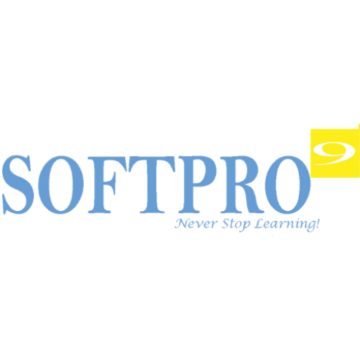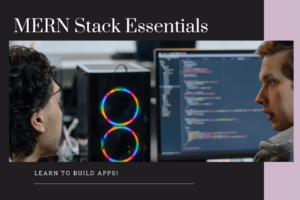
Building Career Future Proof with MEAN Stack
The MEAN stack has emerged as a powerful and versatile technology stack for building modern web applications. As a developer, investing in learning the MEAN stack can be a strategic move to future-proof your career.
As a MEAN stack developer, you’ll be equipped with the skills to create dynamic, scalable, and high-performing web applications. The combination of these technologies allows for seamless data management, efficient server-side logic, and robust client-side functionality, making you a valuable asset to any organization.
The MEAN stack, comprising MongoDB, Express.js, Angular, and Node.js, offers a comprehensive set of tools and frameworks that allow developers to build scalable, efficient, and feature-rich web applications. By mastering the MEAN stack, you’ll be equipped with the skills to tackle a wide range of web development projects, from complex enterprise-level applications to innovative startups.
One of the key advantages of the MEAN stack is its adaptability. As technology evolves, the individual components of the stack continue to be widely adopted and supported by a thriving developer community. This ensures that your MEAN stack skills will remain relevant and in-demand, even as the industry landscape changes.
Moreover, the MEAN stack’s versatility allows you to work on a diverse range of projects, from content management systems and e-commerce platforms to real-time collaboration tools and data-driven web applications. This versatility translates to increased job opportunities and the ability to work on exciting, cutting-edge projects.
By investing in MEAN stack development courses, you’ll gain a deep understanding of the stack’s components, their integration, and best practices for building scalable and maintainable web applications. This knowledge will not only make you a more valuable asset to employers but also empower you to take on more challenging and rewarding projects.
Building a Future-Proof Career with the MEAN Stack: Your Guide to Success
In the rapidly evolving landscape of technology, building a career that is future-proof requires adaptability, versatility, and a keen understanding of emerging trends. For aspiring developers, mastering the MEAN stack – MongoDB, Express.js, Angular, and Node.js – offers a pathway to a dynamic and rewarding career with boundless opportunities for growth and innovation. Let’s explore how embracing the MEAN stack can pave the way for a future-proof career.
1. Embracing Full Stack Mastery
The MEAN stack encompasses the entire web development spectrum, from frontend to backend and database management. By becoming proficient in all four components, developers position themselves as versatile full-stack engineers capable of building end-to-end solutions. This mastery not only enhances job prospects but also enables developers to tackle a wide range of projects and challenges with confidence.
2. Riding the Wave of JavaScript Dominance
JavaScript has solidified its position as the lingua franca of the web, and the MEAN stack leverages its full power across the entire development stack. As JavaScript continues to evolve and expand its reach beyond web browsers, developers skilled in the MEAN stack are well-equipped to capitalize on emerging opportunities in areas such as serverless computing, mobile app development, and the Internet of Things (IoT).
3. Capitalizing on the Popularity of Angular
Angular, a cornerstone of the MEAN stack, boasts a vast and active community, extensive documentation, and robust ecosystem of libraries and tools. By mastering Angular, developers gain access to a wealth of resources and support, positioning themselves as sought-after experts in frontend development. As Angular continues to evolve, developers can stay ahead of the curve by staying engaged with the community and embracing new features and best practices.
4. Leveraging the Scalability of MongoDB
MongoDB, a NoSQL database used in the MEAN stack, offers unparalleled scalability, flexibility, and performance for modern web applications. Developers proficient in MongoDB can design and implement database solutions that effortlessly handle the demands of large-scale applications, ensuring optimal performance and reliability. As organizations increasingly adopt cloud-native architectures and microservices, the ability to work with MongoDB becomes a valuable asset in building scalable and resilient systems.
5. Embracing Node.js for Backend Brilliance
Node.js, the backbone of the MEAN stack, empowers developers to build high-performance, real-time applications using JavaScript on the server side. With its non-blocking, event-driven architecture, Node.js excels in handling concurrent requests and I/O-bound operations, making it an ideal choice for building responsive and scalable backend services. As the demand for real-time communication and data-intensive applications continues to grow, proficiency in Node.js becomes increasingly essential for developers seeking to future-proof their careers.
6. Continuous Learning and Adaptation
In the ever-changing landscape of technology, continuous learning and adaptation are paramount for career success. Developers working with the MEAN stack must stay abreast of the latest trends, tools, and best practices to remain competitive in the job market. By investing in ongoing education, participating in professional development opportunities, and seeking out new challenges, developers can ensure their skills remain relevant and in-demand in a rapidly evolving industry.
Conclusion
Building a future-proof career with the MEAN stack requires dedication, perseverance, and a commitment to lifelong learning. By mastering the core components of the MEAN stack, staying engaged with the developer community, and embracing new technologies and trends, developers can position themselves for success in an ever-changing industry. With its versatility, scalability, and extensive ecosystem of tools and resources, the MEAN stack offers developers a pathway to a rewarding and fulfilling career with limitless opportunities for growth and innovation.



